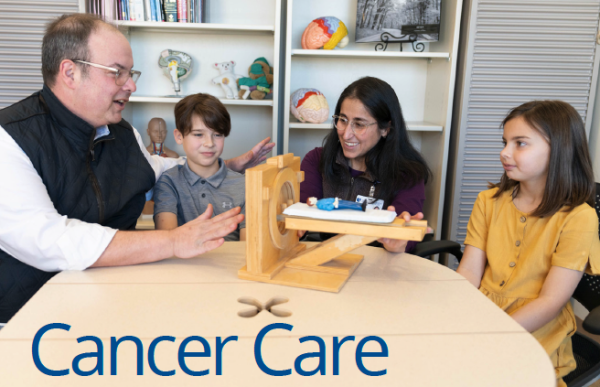What Makes Us Different
The foundational program upon which the Supportive Care and Survivorship Center has been built is the Duke Cancer Patient Support Program. Founded in 1987 by Rachel Schanberg, the Duke Cancer Patient Support Program was one of the first formalized psychosocial support programs in the nation to offer counseling services, volunteer-based peer support, and self-image resources.
You Are Not Alone
In 2002, under the new leadership of Dr. Cheyenne Corbett, the Cancer Patient Support Program continued to work toward identifying the needs of patients and their loved ones facing cancer. With the motto ‘You Are Not Alone’ and the generous support of donors, the Program implemented new services to address identified gaps in care, adding comprehensive resources to support families throughout cancer.
Such innovations in care include the addition of child life services and the development of KidsCan! to educate and support families with a parent diagnosed with cancer The Program also added medical family therapy with a team of licensed family therapists. They support those facing the impact of cancer on their lives. Self-image services continued to expand, and now provide services with shops at three Duke Cancer Center locations. Each location is staffed by self-image consultants who provide personalized education and recommendations to address physical changes experienced through cancer treatment. Additionally, certified fitters are onsite for prosthetics, orthotics, and compression garments.
From recreation therapy to pet therapy, and an ever-growing listing of support groups, the Duke Cancer Patient Support Program continues to flourish and offer no-cost services, so every person who enters our doors has access to comprehensive care.



















